Notice that the type String is capitalized and is not one of Java's 8 primitive types (int, boolean, double, char, etc.). This indicates that any instance of a String is an object that was built using the 'blueprint' of the class String. Because variables in Java that refer to objects only store the memory address where the actual object is stored, when you compare Strings with == it compares memory location.
String str1 = new String("hello");
String str2 = str1; //sets str1 and str2 pointing to same memory loc
if (str1 == str2){
//do stuff; the code will enter this if-statement in this case
}
The way to compare the values within objects in Java is with equals(), such as:
String str1 = new String("hello");
String str2 = new String("hello"); //str2 not same memory loc as str1
if (str1.equals(str2)){
//do stuff; the code will enter this if-statement in this case
}
This is a common error for beginners, since the primitive types are not objects and you CAN compare two ints for equality like:
int one = 1; //primitive types are NOT objects
int two = 2; //notice when I make an int, I don't have to say "new"
//which means a new **object**
if (int1 == int2) {
//do stuff; in this case the program will not enter this if-statement
}
It seems that you understand everything but the meaning of the very last line. See my comment on the last line.
String s1 = new String(new String("2")+new String("2")); //declare AND initialize s1 as a new String object
s1.intern();
String s2="22"; //declare a new variable s2 and point it to the same object that s1 is pointing to
System.out.print(s1==s2);
String s3 =new String (new String("2")+new String("2"));
s3.intern();
String s4="22";
System.out.print(s3==s4); //check if s3 and s4 are stored in the same memory location = FALSE
